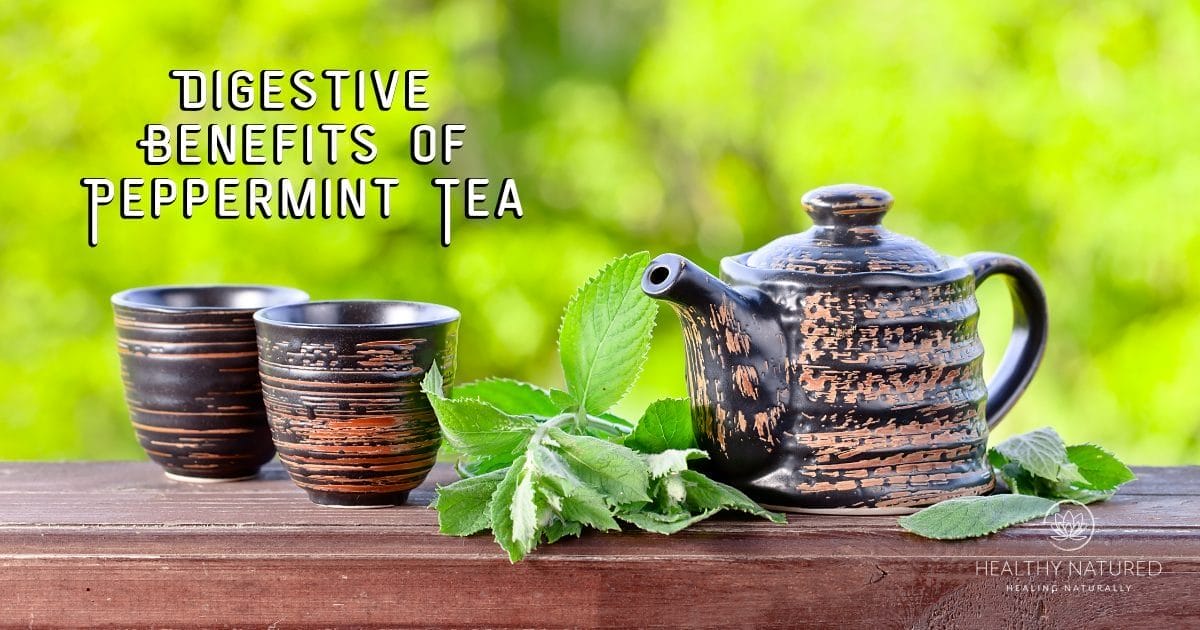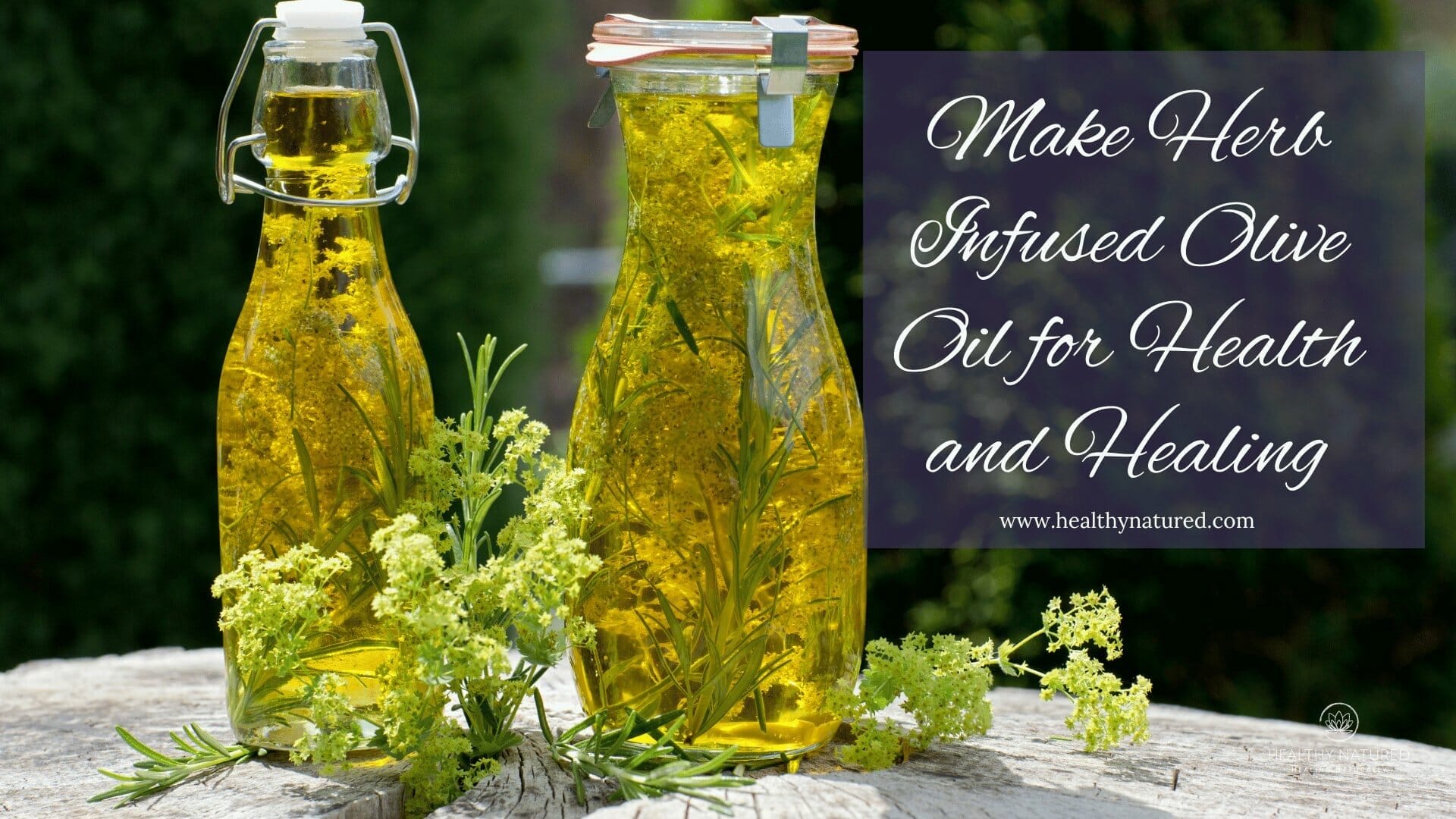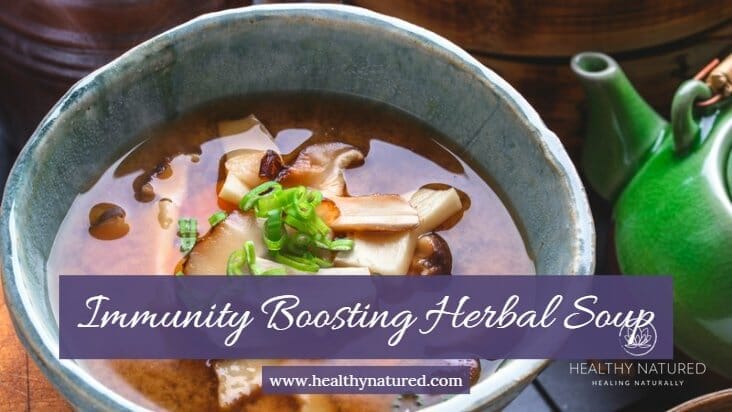Peppermint gently supports your digestive system by relaxing stomach muscles and relieving occasional post-meal bloating. Millions reach for a warm cup of tea when under the weather — its natural oils soothe the stomach.
Experience a buoyant feeling that refreshes the senses and lifts your spirits. For natural remedy enthusiasts, the digestive benefits of peppermint tea are achieved through a soothing daily tradition that cultivates wellness and harmony.
Key Takeaways
- Peppermint can relax your digestive tract, relieving cramps, bloating and supporting regularity for digestive comfort.
- The natural compounds in peppermint tea, like menthol and flavonoids, soothe your stomach, reduce inflammation and give you fast relief from that full or icky feeling.
- Peppermint may additionally provide you with headache relief, increase your mental acuity, and freshen your breath due to its soothing scent and antibacterial qualities.
- Incorporating peppermint into your daily ritual can be a soft form of self-care, infusing your day with warmth, calm, and presence.
- Peppermint tea can be tasted with fresh leaves, dried leaves or tea bags and playing around with brewing styles allows you to discover your favorite taste and intensity.
- If you suffer from heartburn, are on medication or are pregnant, consult your doctor before drinking peppermint beverages to confirm that it’s safe for you.
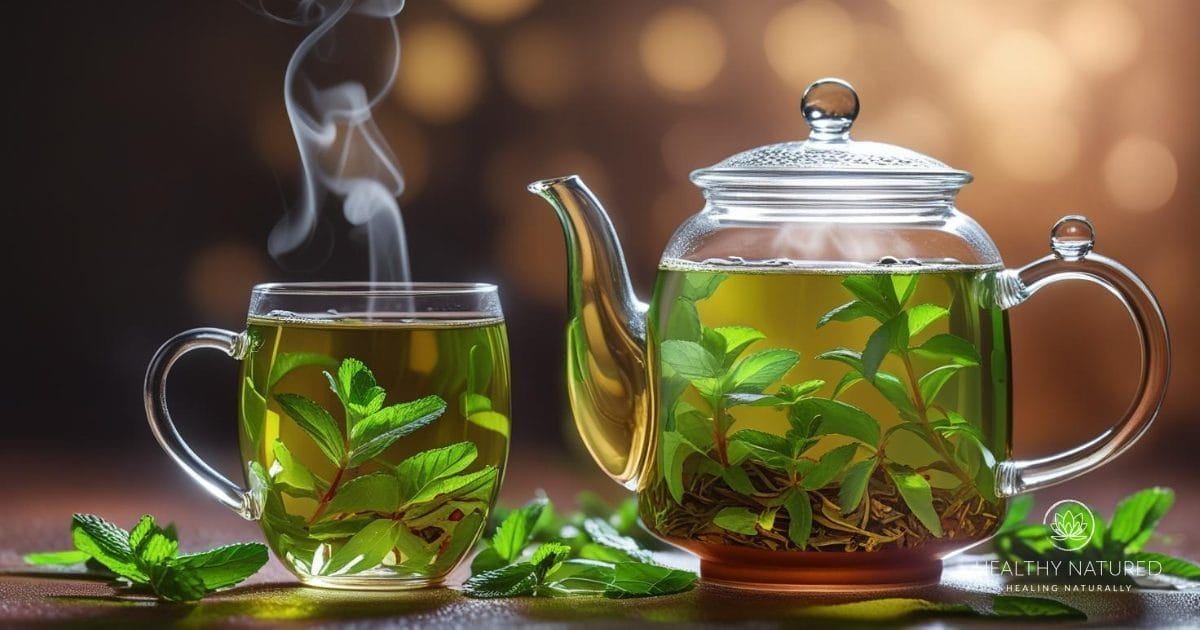
How Does Peppermint Tea Aid Digestion?
This herbal tea is a classic treatment for digestive distress, combining age-old folk knowledge and contemporary research. You’ll see it employed across cultures, from early Native Americans who used to brew wild mint leaves for tummy aches to Indian and Persian folk medicine.
This herbal infusion’s combination of menthol, menthone, and natural plant compounds work together to soothe your digestive tract, alleviate bloating and promote regularity.
1. Soothes Muscles
Peppermint tea soothes the muscles of your stomach and intestines. This relaxation reduces stress and releases the indigestion pain that can accompany a big dinner.
As a natural muscle relaxant, peppermint tea can provide you relief from cramps or spasms in your digestive tract. Here, it’s the menthol content that works, calming not only your stomach but occasionally subduing those stress-related headaches co-occurring with your tummy ache1Evaluation of mint efficacy regarding dysmenorrhea in comparison with mefenamic acid.
Drinking this tea consistently could potentially induce a soothing sensation within your digestive tract, allowing your body to digest meals more effortlessly.
2. Eases Bloating
There’s nothing worse than a bloated stomach that makes you feel heavy and lethargic. Peppermint tea helps your body to relieve the feelings of bloating or pressure by assisting in the evacuation of trapped gas.
Following a rich or heavy meal, you might find that sipping a warm cup of peppermint infused tea provides rapid relief from that bloated, swollen sensation2The anti-spasmodic effect of peppermint oil during colonoscopy: a systematic review and meta-analysis. The menthol in peppermint stimulates your digestive tract to propel gas forward so you can get back to feeling light and breezy.
This action is prized in many traditional medicine systems, both European and Asian. So when bloating crashes your party, peppermint tea offers a soothing, convenient reprise.
3. Calms Indigestion
Indigestion can spoil the pleasure of a meal and can leave you with stomach pain. Peppermint tea has been taken for centuries, in everything from Indian herbal mixtures to current wellness routines, to alleviate these symptoms and calm your digestive lining.
This soothing quality helps calm inflammation3Indigestion (Dyspepsia): Symptoms, Causes, and Treatments, Web MD, particularly after eating spicy or greasy foods. As a natural solution, peppermint tea provides your body with a soothing, non-medicinal alternative to calm an upset stomach.
The warm liquid, along with its signature biting taste, can mitigate pain, transforming every meal into something worth anticipating once more.
4. Stimulates Bile
Peppermint tea owes much of its digestive power to key active compounds. Menthol, the main ingredient, acts as a gentle analgesic, which can ease digestive pain and discomfort.
Flavonoids in peppermint offer antioxidant benefits, supporting your gut’s health and resilience. Rosmarinic acid, yet another natural compound, is thought to aid in reducing inflammation across your digestive tract, providing an additional coating of soothing.
These promote bile creation in tandem, assisting your system in digesting fats in addition to sustaining regular bowel movements (and avoiding hemorrhoids).
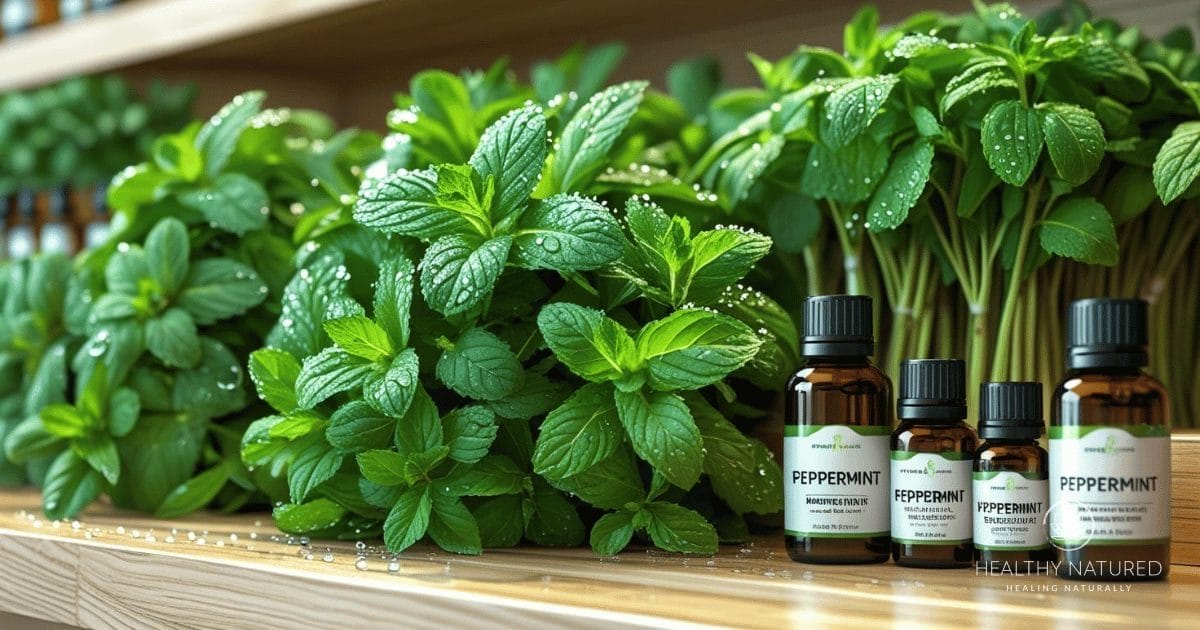
The Science Inside Your Cup
Peppermint tea, particularly fresh peppermint tea, is more than a mild comfort; it’s a medically-supported digestive aid. The bioactives in each cup, especially menthol and flavonoids, have direct roles in soothing your body and mind. That special aroma you smell with each sip is not only delightful but purposeful, influencing your experience and potential health benefits.
Menthol
Menthol is the hallmark molecule that provides peppermint tea with its refreshing chill. Not only is this a treat for your senses—it’s famous for soothing your stomach. When you sip your tea, menthol can assist in relaxing the smooth muscles of your gut — so those cramps, bloating or discomfort after a heavy meal can subside.
A lot of people find this cooling effect supportive for nausea, particularly while traveling or under digestive distress. Menthol’s scent and taste contribute to your pleasure, which is why peppermint is a fan favorite for summer and winter blends alike.
If the peppermint oil isn’t released in the intestines, its soothing effect may stay limited to the stomach as well. It’s not for everyone – some people get significant relief, others see only subtle benefits.
Flavonoids
Flavonoids in peppermint tea are potent antioxidants. They neutralize free radicals in your digestive tract, shielding your gut from oxidative stress like invisible armor against molecular mayhem. This antioxidant action is more than abstract; it helps your gut’s durability in the long term.
In addition to their antioxidant might, flavonoids suppress inflammation in your gut. If you’re prone to irritable bowel symptoms or general digestive discomfort, these compounds could assist in calming flare-ups.
Their wide health reach goes beyond digestion, bolstering your body’s natural defense and potentially boosting your overall mood.
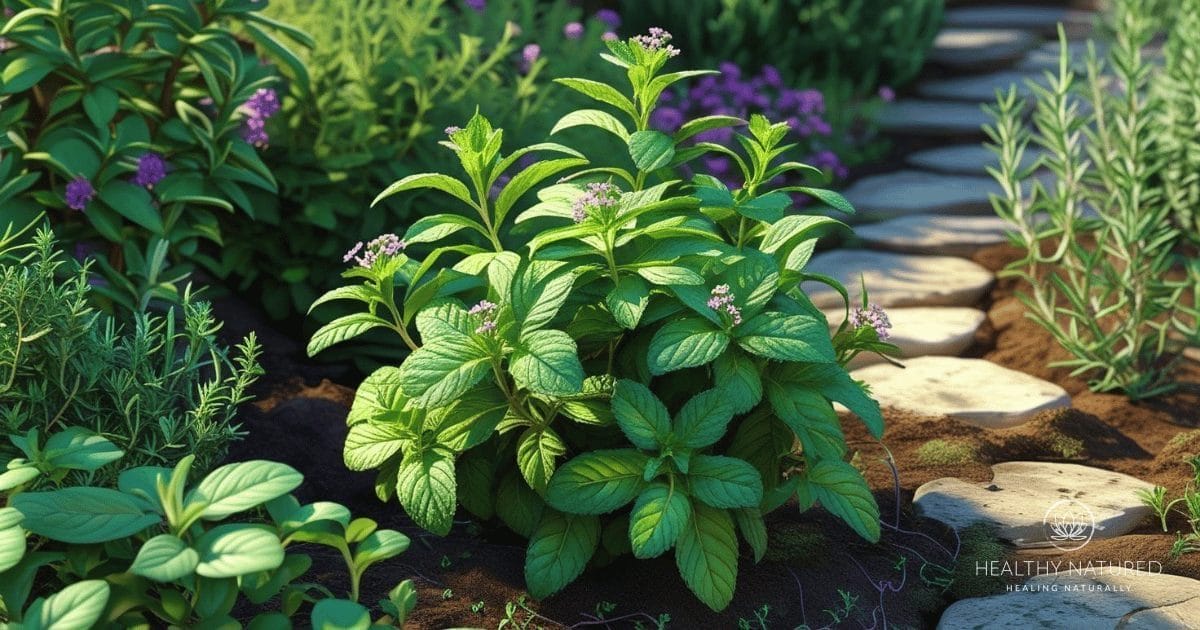
Rosmarinic Acid
Rosmarinic acid, one of peppermint’s key components, provides a particularly strong anti-inflammatory punch. When you sip peppermint tea, this compound goes to work soothing irritation and inflammation in your digestive system. For the tender tummies and chronic GI sufferers out there, this mild assistance is a godsend.
Studies indicate rosmarinic acid won’t just tranquilize your intestines; it boosts the efficacy of peppermint tea in its entirety. Its presence might increase the effects you experience, particularly in conjunction with mint’s other bioactives.
More Than Digestion
Peppermint tea is a good deal more than just digestive solace. Its calming effect can ease headache tension. Topical peppermint oil has exhibited potential in research to reduce headache pain.
It’s associated with fresher breath and improved oral health, due to peppermint oil’s antimicrobial properties. Frequent intake might boost alertness, cognitive function and mood, researchers recently discovered.
Others like separate blends for separate seasons, tweaking to taste and comfort.
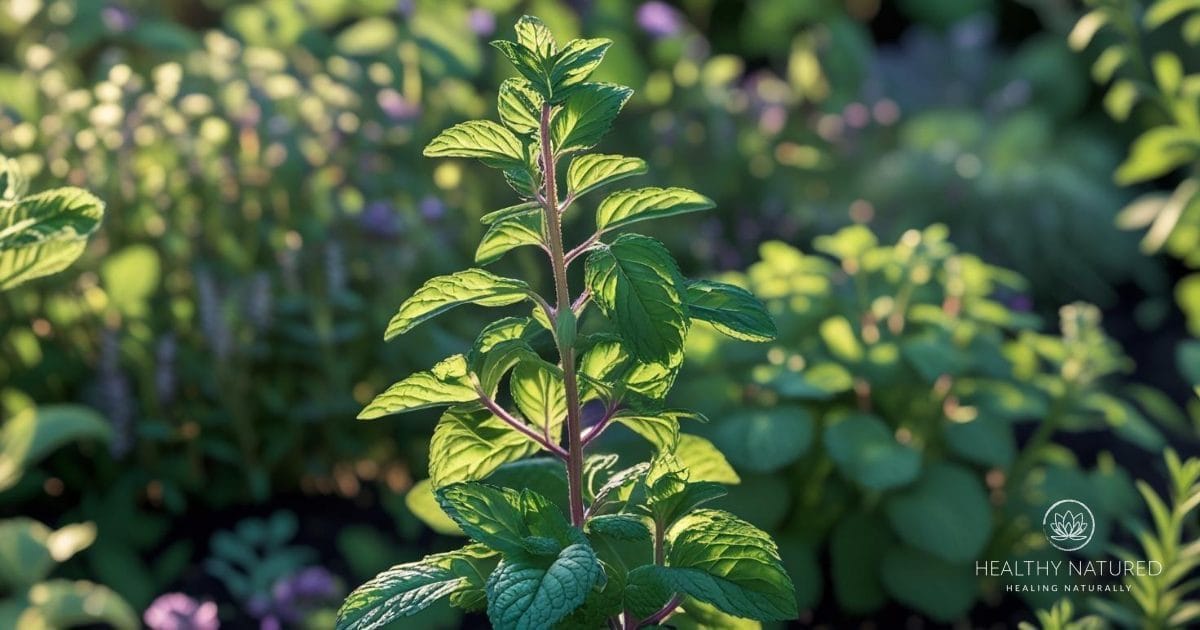
More Than a Tummy Tamer
Peppermint tea is known for settling the stomach but it extends far beyond digestion. This humble herbal tea is beloved in holistic health circles for its refreshing mix of menthol and menthone, compounds that do more than soothe the stomach but can actually support whole-body wellness in concrete ways.
Think about where peppermint tea can slot into your existing habits — whether you need a headache hit, a concentration boost, breath freshening, or just a mindful pause.
Headache Relief
Peppermint tea stands out as a natural remedy for tension headaches and migraines. The menthol in peppermint leaves works as an analgesic, gently soothing pain by relaxing the muscles around your head and neck.
If you’ve ever grabbed a remedy during a headache, you’ll notice the cooling sensation peppermint gives you—a side effect of increased blood circulation and slight anesthetization. For others, there’s something about sipping peppermint – or even just breathing in the aroma – that offers gentle, consistent comfort.
If you make this tea a regular ritual in your life, it will decrease the number of stress headaches you encounter. Savor the soothing steam and delicate aroma, which work in tandem to calm the mind and body, particularly when you’re in the thick of things or feeling stressed.
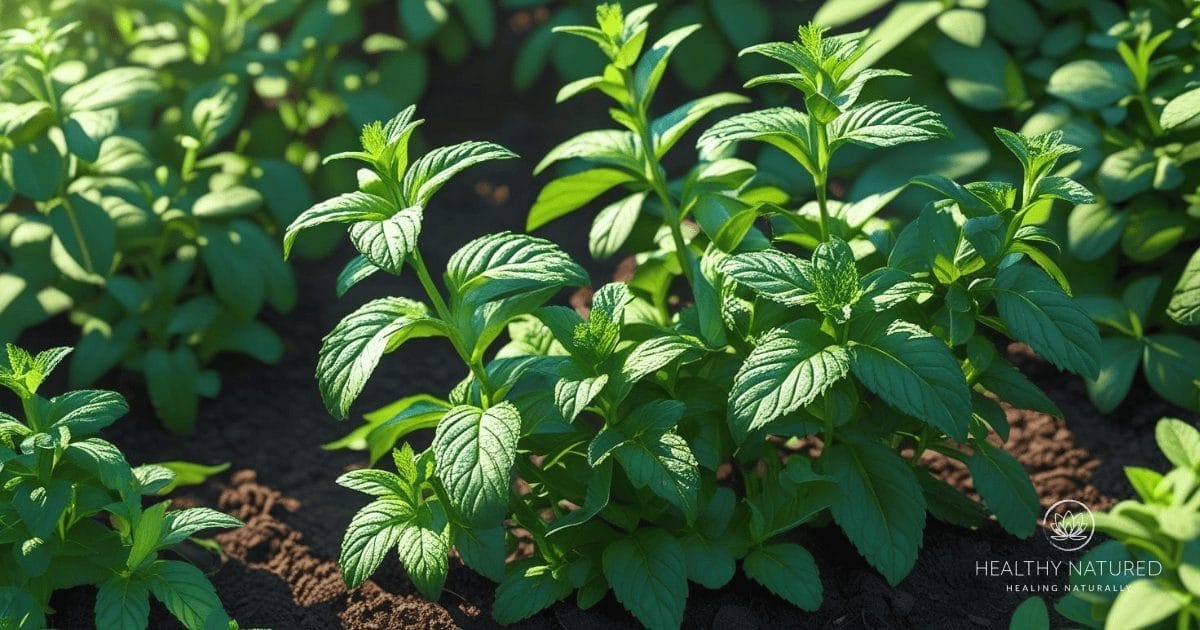
Mental Clarity
If you’re looking for a light mental pick me up, peppermint tea provides an easy, herbal alternative. That menthol content is said to promote enhanced focus — a smart selection pre-study or pre-work meeting.
Studies indicate that merely sniffing peppermint oil and the tea may decrease mental exhaustion. The invigorating scent can help to brighten your spirits, leaving you feeling energized rather than bogged down by the day.
Building the habit of taking a cup in the afternoon, or just before any creative work, can keep you clear-minded. It’s a godsend when pushing for that last extended stretch of caffeine-fueled productivity.
Freshens Breath
Additionally, the inherently minty taste of peppermint provides a pretty good weapon against bad breath as well. Strong antibacterial effects against oral pathogens support your oral hygiene beyond just fresh breath.
You could think of peppermint tea as a mild, botanical mouthwash. Swishing with cooled tea is an easy way to reap these benefits. Incorporating it into your morning or evening routine can help you achieve lasting freshness.
Mindful Ritual
There’s a self-care ritual in brewing peppermint tea that so many miss. So making a soothing ritual out of your sipping can make the difference to turn a simple pause into a grounding moment.
With mindful sipping, you dial in to the aroma, temperature and cooling flavor, furthering your presence and relaxation. This humble tea—just water and dried leaves—reminds you that wellness doesn’t have to be complex.
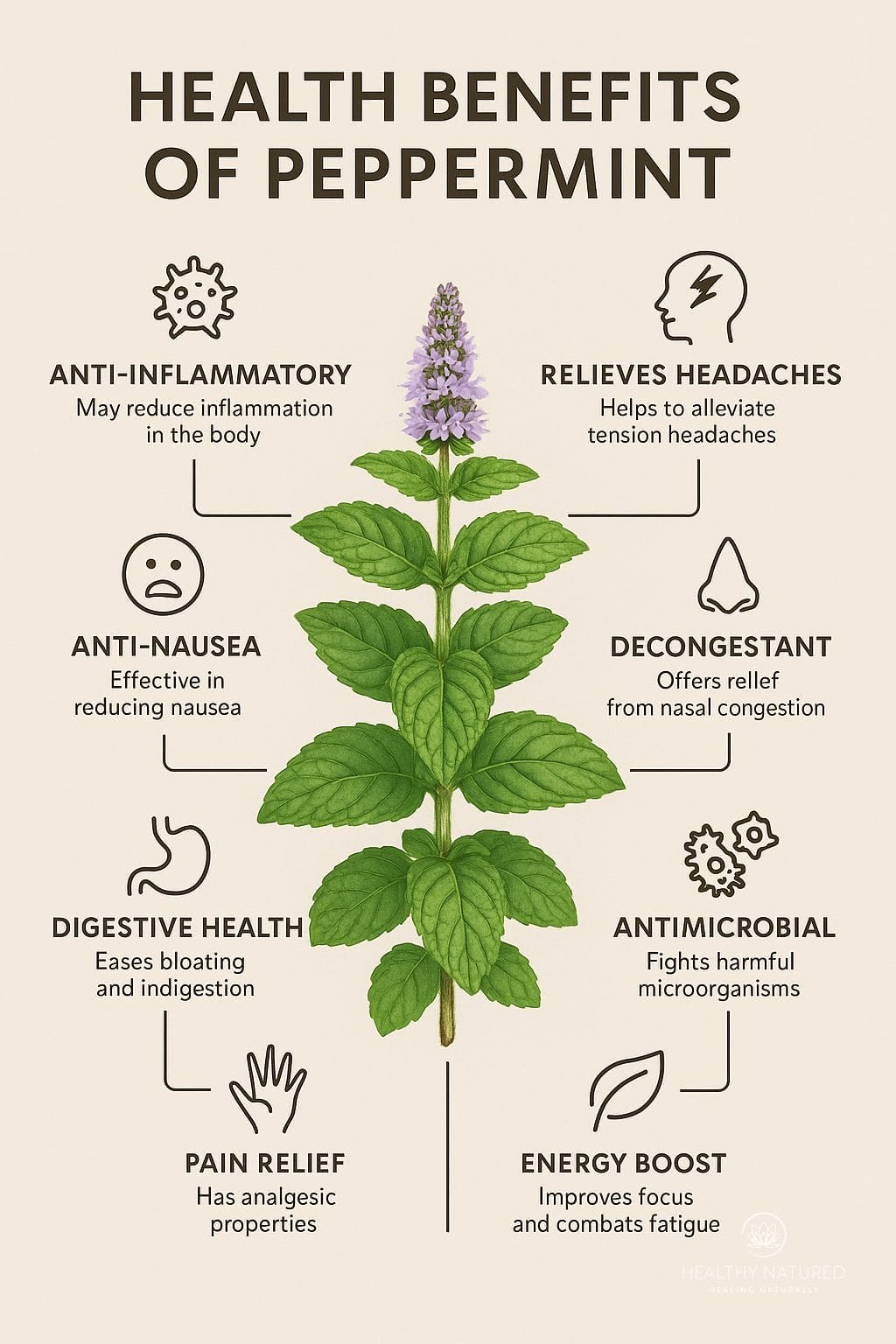
My Take: A Ritual, Not Just a Remedy
Savor the soothing heat of a hot cup of fresh mint tea. It’s not just a beverage–it’s a ceremony that beckons you to pause, calm menstrual cramps, and lovingly re-engage your physical form. Peppermint tea digestive benefits begin with this ritual, transforming every cup into a beneficial drink for your health.
The Warmth Factor
Sense the steam billowing, breathe in that crisp, cool scent mixed with a touch of earth. Mindful sipping isn’t rushed—it’s allowing each mouthful to linger, savoring the tingly sensation as the peppermint pirouettes across your palate. It’s not just about taste.
It’s about coaxing your senses to sink into the present, allowing that heat to flow through your being, untying knots in your abdomen and chest. Treat this break with respect. Mentally enjoy the relaxing sensations as the heat spreads, relaxing tension from a hard day or digesting a big lunch.
Utilizing herbal tea in this manner nurtures not simply physical relief, but a grounded calm and presence that can radiate throughout your entire evening.
Mindful Sipping
Peppermint tea rejoices in the wilderness. Pure peppermint leaves, no other. No secrets, no synthetic flavors—only the pure, natural essence of mint. This simple-by-design method implies what you’re sipping is kind to your system.
It’s caffeine free, so you can have a cup late at night without concern and it won’t make you jittery or disturb your sleep. Selecting this herbal tea becomes an act of self respect. You’re saying yes to a wholesome, nurturing beverage choice, understanding its value comes from the natural world’s apothecary.
The straightforwardness of its ingredients carries over to the straightforwardness of your body and mind.
Natural Simplicity
Nailing your peppermint tea ritual begins with the craft of brewing. The fundamentals are straightforward, but some trial and error makes it your own. Experiment with infusing your tea for three to five minutes–less for a milder flavor, more for a strong, almost menthol brew.
Don’t hesitate to tweak until you discover your personal perfect. If you can get your hands on some fresh peppermint leaves, so much the better. The smell is brighter, the taste fuller—each gulp seems vibrant.
Hot tea is timeless; however, don’t discount a cold brew on warm days – it’s invigorating and just as effective. The ritual shifts to your needs, season and mood.
Ritual in Everyday Life
Adding peppermint infused tea to your routine isn’t difficult. Sip a cup after a meal, or anytime your stomach is uneasy. Use it as a reminder, a ritual, not just a remedy — a gentle push to calm down in the evening.
A simple cup, a moment for yourself.
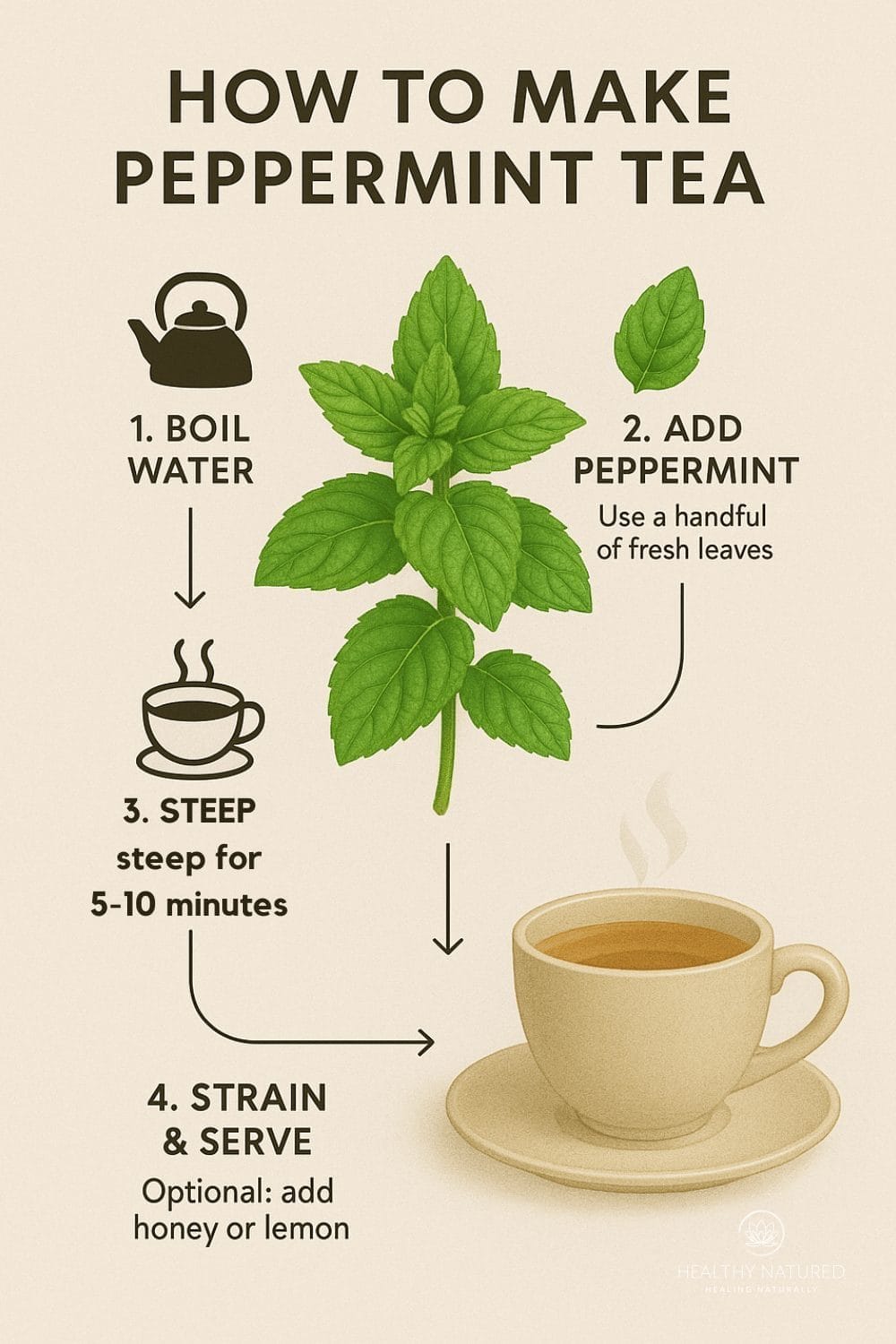
Brewing the Perfect Cup
Peppermints digestive prowess is intimately connected to brewing it, especially when using fresh mint. The breed and quality of your herb, storage, and style of preparation all sculpt the result—both in flavor and healing potency.
Fresh Leaves
The fresh peppermint leaves bring an explosive, refreshing smell and a wide range of flavors, making them a popular choice for herbal mint tea. You can customize your cup by adding 5-10 leaves per 250 ml of water, depending on your desired strength. Rinsing the leaves briefly under running water scrubs off any dirt without bruising the tender leaves. This method helps maintain the integrity of the leaves, which are known for their potential health benefits, including relief from menstrual cramps.
It must be stored with fresh leaves. Wrap them loosely in a damp paper towel and hide in an airtight container before refrigerating. This process will preserve the leaves fresh for nearly a week. If you discover you’re not going through the leaves fast enough, try chopping and freezing them in little nugs—prepped for tea or cooking.
Dried peppermint leaves are so much more convenient, great for rushed mornings or when you’re on the road. Most grocery stores sell dried peppermint in resealable pouches, which helps keep the leaves’ essential oils intact. Store your dry leaves in a cool, dark place out of direct sunlight.
Experiment with brands — some have a grassier note, others a sweet finish. Switching up between brands keeps your tastebuds interested and can subtly impact how comforting the tea is on your stomach. When you do compare, fresh leaves provide a brighter, almost citrus edge, where dried leaves provide more earthy, concentrated flavors. Both help after decadent feasts, but the taste experience changes with each.
Dried Leaves
Dried peppermint is the cowboy of home tea ceremonies, especially when you prepare a soothing cup of fresh peppermint tea. For a single cup, about a teaspoon of loose dried mint leaves is recommended. Pour hot but not boiling water (around 90 degrees Celsius) over them to prevent bitterness. Let steep for five minutes, strain, and enjoy the rich flavor that can help tame an upset stomach after a hectic day.
To keep dried leaves at their prime, store them in a glass jar with a sealed lid, away from moisture or warmth. If your kitchen is particularly warm, putting the jar in a cupboard is advisable. Every few months, inspect for fading color or aroma – these are the signs that it’s time for a new batch of herbal mint tea.
Tasting dried peppermint is a regional or brand adventure. An Egyptian dried leaf, for instance, could taste faintly floral, whereas a Mediterranean one might be sharper. Dive into these distinctions and discover what works best for your stomach!
Tea Bags
Tea bags provide unparalleled convenience. When selecting, seek out brands that specify peppermint as the sole ingredient and steer away from blends with synthetic flavors. This guarantees you’re receiving the full intestinal advantage.
Loose leaf tea usually brews a more robust, nuanced taste than your average bagged tea. Good tea bags with larger cut leaves can get there. For optimal benefit from a tea bag, drench it with boiled water, cover your cup and allow it to steep an absolute minimum of five minutes.
This assists in enticing those important menthol oils that help soothe bloating and calm the digestive system. Sustainable tea bags crafted from unbleached paper or plant-derived substances nurture your health and the environment. A lot of brands have compostable packaging now, so you can sip that ritual with a lighter footprint.
Cautions and Considerations
Peppermint tea is safe to drink, but as with most things, moderation is advised. High doses can cause heartburn in peppermint-sensitive individuals. If you’re on medications for acid reflux, blood pressure or diabetes, check with your doc before making peppermint tea a daily habit.
Pregnant people should consult their physician, particularly in early pregnancy, as peppermint can increase uterine relaxation.
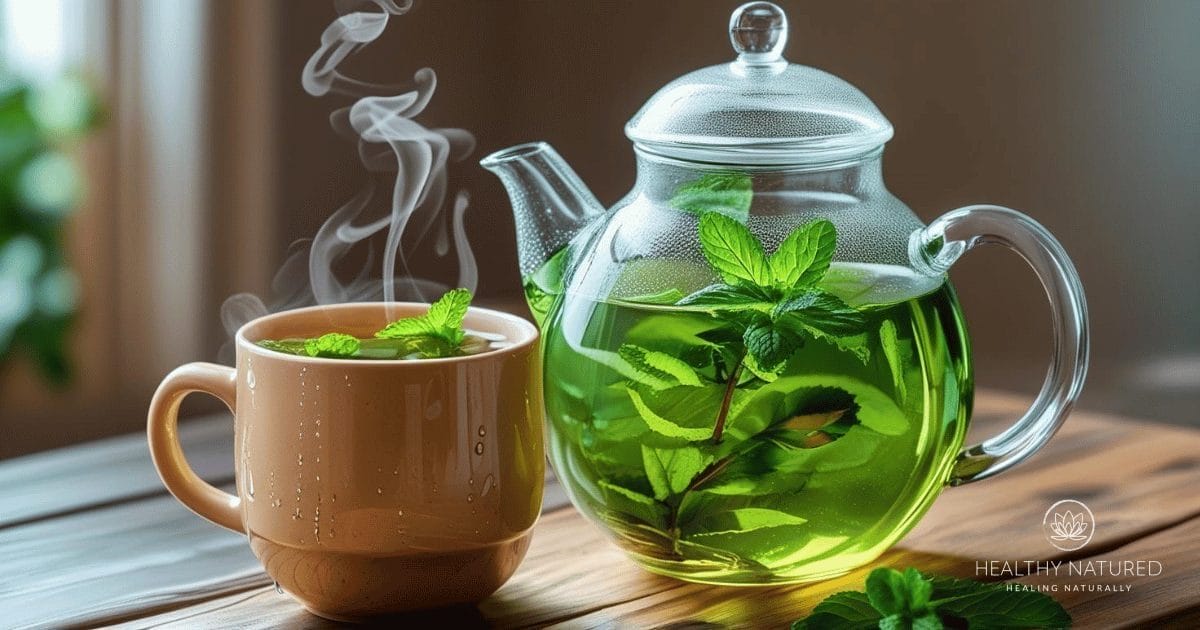
Important Considerations
Peppermint tea, known for its digestive aid properties, offers calming benefits that deserve your respect. Factors like personal health, sensitivity, and lifestyle influence your experience with this beneficial drink. By considering these aspects, you can enjoy fresh tea while harnessing its pepperminty potential health benefits for overall wellness.
Heartburn Risk
If you’re prone to heartburn or have a history of acid reflux, the digestive benefits of peppermint tea and its muscle-relaxing powers may not always work to your advantage. This relaxation can allow stomach acid to flow back up into your esophagus, causing burning after just a single cup. Be warned if you’re experiencing heartburn after your peppermint tea ritual.
If you do suffer, however, try substituting gentler options like ginger or chamomile tea, which are less likely to cause reflux. See your doctor if heartburn becomes frequent or severe after consuming peppermint. Custom guidance makes sure you strike the right balance between digestive ease and symptom control.
Self-monitoring gets you making empowering decisions about your daily tea habits.
Medication Interactions
Peppermint tea, known for its potential health benefits, can interact with certain medications, particularly antacids and blood thinners. If you’re on medications, it’s wise to discuss your plan to incorporate fresh peppermint tea with your doctor. They can help you weigh the pros and cons of your medication while considering the analgesic effects of peppermint.
Maintain a mini health log, noting any shifts in how you feel – if you observe digestive symptoms or other surprises after mixing peppermint tea with your meds. This easy routine encourages cautious, educated self-treatment.
Keep in mind, your body’s reactions provide good feedback that informs your choices.
Pregnancy Caution
Pregnancy can change what your body craves and reacts to. Though many use peppermint tea to soothe digestion, it should be taken with caution if you’re pregnant or nursing. There’s not a lot of research out there on peppermint tea safety during these life stages, and people can respond very differently.
ALWAYS ask your healthcare provider first. If you encounter any abnormal symptoms—nausea, cramps, allergic reactions like an itchy throat or cough—stop your intake and consult a doctor. Moderation is the key, and shop for teas from trustworthy brands with clear ingredient lists.
Quality and sourcing matter: look for plastic-free, biodegradable tea bags and pure peppermint leaves for optimal safety and flavor.
Additional Tips – Digestive Benefits Of Peppermint Tea
- Carefully check product labels for ingredient purity and environmentally friendly packaging.
- Watch out for allergic reactions like coughing or wheezing.
- Just steep some peppermint leaves for about 5 minutes to get the most out of its healing properties.
- Use premium leaves or bags for the most complete flavor and digestive benefits.
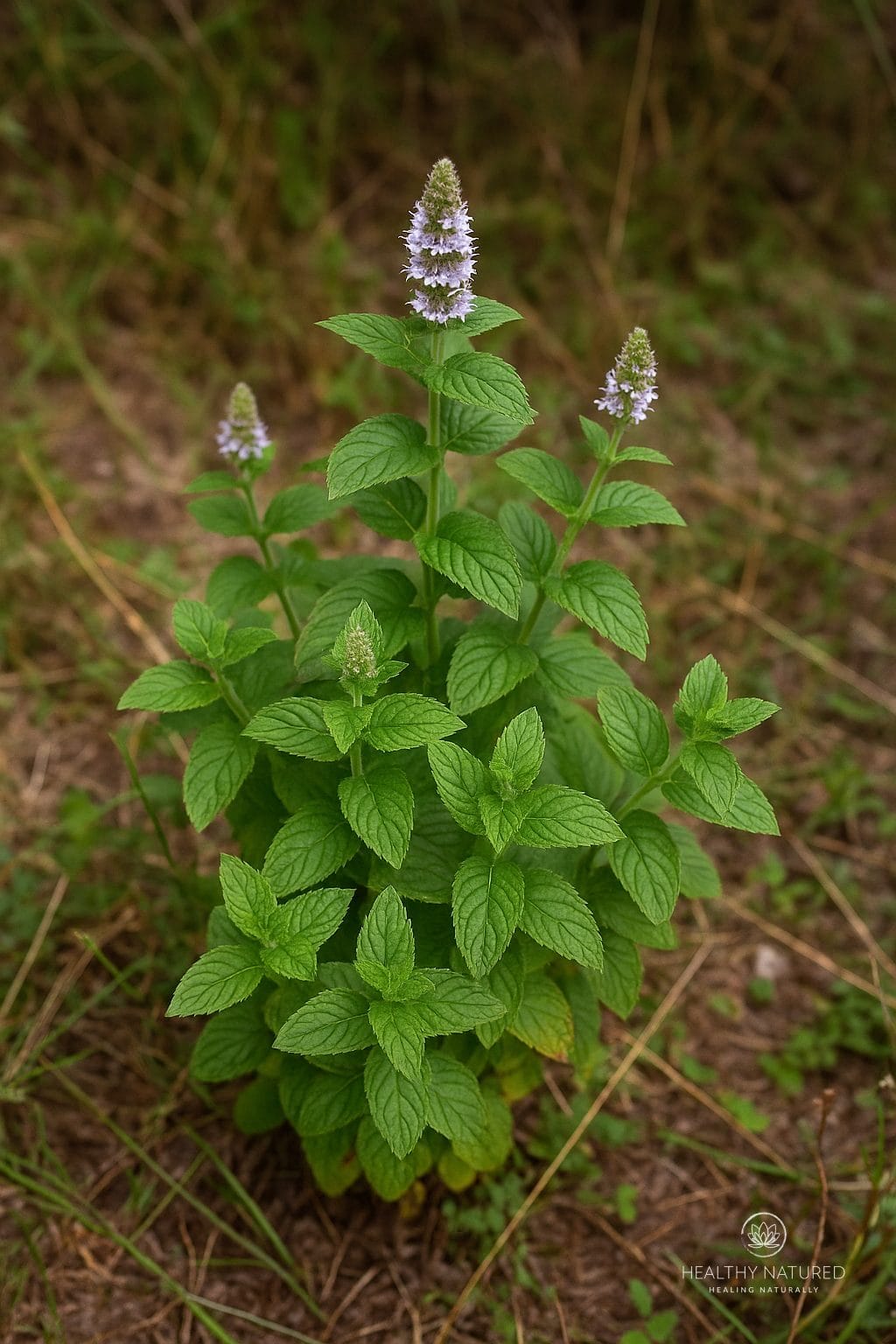
Conclusion
Peppermint tea adds a soothing grace to your digestive regimen. The comforting menthol aroma and refreshing, frosty flavor of peppermint provide more than a delightful escape — they encourage your body’s inherent harmony. You may experience relief after a heavy meal, or feel a lighter, calmer sensation in your digestive tract after a stressful day.
The science leads us to true benefits; tradition provides centuries of confidence. So whether you’re after a thoughtful ritual or a practical remedy, peppermint slips effortlessly into your routine. As always, listening to your body and noticing how you feel after each cup will help you get the most from this ancient herbal ally. With every sip, you welcome both relief and a touch more harmony into your day.
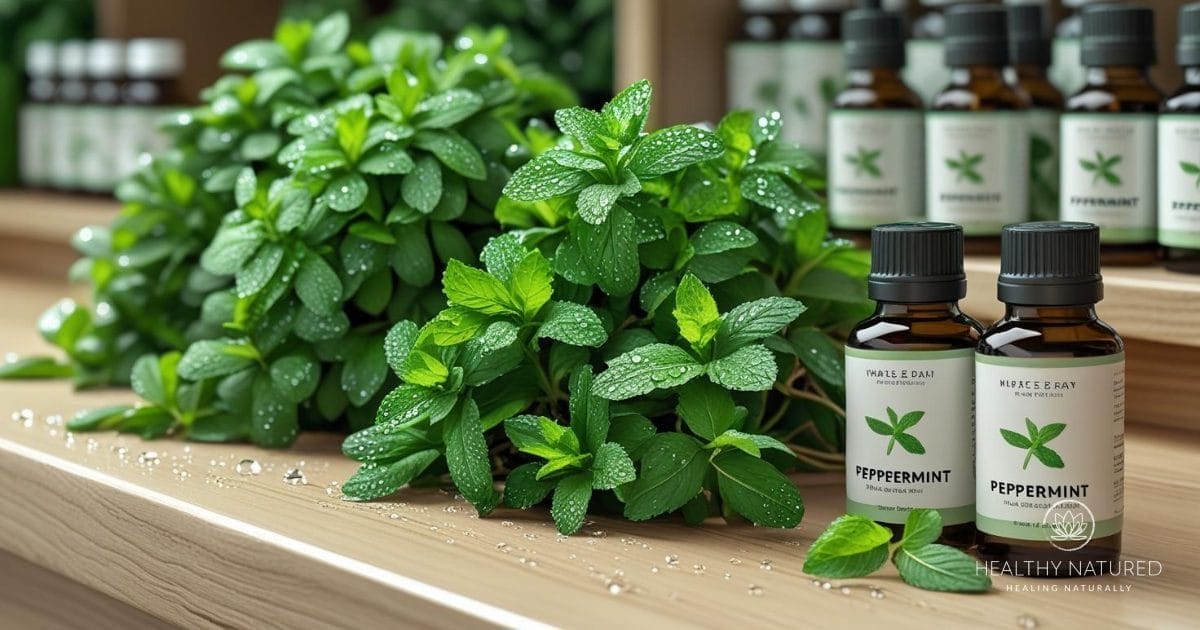
FAQ
Fresh peppermint tea can help relax the muscles of your digestive tract, providing symptom relief from bloating, gas, and stomach pain while complementing smoother digestion for a better feeling after eating.
Yep, fresh peppermint tea can alleviate indigestion, soothe your stomach, ease bloating, and minimize abdominal discomfort post-meal.
Peppermint tea, particularly fresh peppermint tea, is safe for most individuals. However, it can induce heartburn in some people or interfere with medications, so consult your doctor first.
Most IBS folks I know swear by fresh peppermint tea, as it could lessen menstrual cramps and discomfort by relaxing your gut muscles. You’ll want to check with your doctor first when using it for IBS.
You can enjoy fresh peppermint tea daily, especially after meals. Start with a cup and pay attention to your body. Always consult a healthcare provider if necessary for any potential health benefits.
Yes, fresh peppermint tea alleviates gas and bloating due to its natural compounds, which help loosen your digestive tract for symptom relief.
Peppermint tea, while a beneficial drink for many, may not be suitable for those with acid reflux, hiatal hernia, or an allergy to mint. Pregnant or breastfeeding individuals, as well as those with chronic health problems, should consult their physician before enjoying fresh mint tea.
References
- 1Evaluation of mint efficacy regarding dysmenorrhea in comparison with mefenamic acid
- 2The anti-spasmodic effect of peppermint oil during colonoscopy: a systematic review and meta-analysis
- 3Indigestion (Dyspepsia): Symptoms, Causes, and Treatments, Web MD

